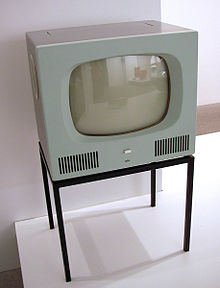Need
thing that is necessary for an organism to live a healthy life
(Redirected from Needs)
A need is a thing that is necessary for an organism to live a healthy life. Needs are distinguished from wants in that, in the case of a need, a deficiency causes a clear adverse outcome: a dysfunction or death.

Quotes
edit- Andrea: Unglücklich das Land, das keine Helden hat.
Galilei:Nein. Unglücklich das Land, das Helden nötig hat.- Andrea: Unhappy is the land that has no hero.
Galileo: No, Andrea: Unhappy is the land that needs a hero.
- Andrea: Unhappy is the land that has no hero.
- Bertolt Brecht, Life of Galileo (1938), Scene 12, p. 115
- For want of a Nail the Shoe was lost; for want of a Shoe the Horse was lost; and for want of a Horse the Rider was lost; being overtaken and slain by the Enemy, all for want of Care about a Horse-shoe Nail.
- Benjamin Franklin, Poor Richard's Almanack (June 1758)
- The Earth provides enough to satisfy every man's need but not for every man's greed.
- Mahatma Gandhi, as quoted by Pyarelal Nayyar in Mahatma Gandhi: The Last Phase, Vol. 10 (1958), p. 552
- In the last analysis, the question of what are true and false needs must be answered by the individuals themselves, but only in the last analysis; that is, if and when they are free to give their own answer. As long as they are kept incapable of being autonomous, as long as they are indoctrinated and manipulated (down to their very instincts), their answer to this question cannot be taken as their own.
- Herbert Marcuse, One Dimensional Man (1964), pp. 3-6
- The cultivation and expansion of needs is the antithesis of wisdom. It is also the antithesis of freedom and peace. Every increase of needs tends to increase one’s dependence on outside forces over which one cannot have control, and therefore increases existential fear. Only by a reduction of needs can one promote a genuine reduction in those tensions which are the ultimate causes of strife and war.
- E. F. Schumacher, Small is Beautiful (1973), p. 31
- Goneril:
What need you five-and-twenty? Ten? Or five?
To follow in a house where twice so many
Have a command to tend you?
Regan:
What need one?
Lear:
O, reason not the need: our basest beggars
Are in the poorest thing superfluous:
Allow not nature more than nature needs,
Man’s life is cheap as beast’s. Thou art a lady;
If only to go warm were gorgeous, ...
But, for true need,—
You heavens, give me that patience, patience I need!- William Shakespeare, King Lear, act 2, scene 4